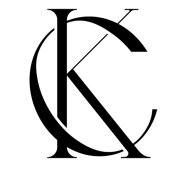Best Bankruptcy Lawyers in Norway
Share your needs with us, get contacted by law firms.
Free. Takes 2 min.
Or refine your search by selecting a city:
List of the best lawyers in Norway
About Bankruptcy Law in Norway
Bankruptcy law in Norway provides a framework for handling cases where individuals or businesses can no longer meet their financial obligations. The goal is to ensure equitable distribution of the debtor's available assets among creditors and, where possible, allow businesses to resume operations. Bankruptcy proceedings are generally initiated when a debtor is insolvent, meaning they cannot meet their debts as they fall due, and a petition is filed either by the debtor or a creditor. The Norwegian system is primarily governed by the Bankruptcy Act of 1984.
Why You May Need a Lawyer
Individuals and business owners may find themselves in need of legal advice regarding bankruptcy for several reasons. If you are unable to pay your debts, a lawyer can help you understand your options and rights. Creditors seeking to recover debts may also require legal assistance to navigate the proceedings. Additionally, if you are a business owner, legal counsel can guide you through restructuring processes to potentially avoid a declaration of bankruptcy. Lawyers help ensure legal compliance and protect your interests through this complex process.
Local Laws Overview
Bankruptcy laws in Norway are designed to balance the needs of debtors and creditors. Key aspects include:
- The Bankruptcy Act of 1984 outlines procedures and requirements for initiating bankruptcy.
- A public trustee or bankruptcy administrator manages the liquidation of assets and distribution of proceeds to creditors.
- Creditors must file claims within a specified timeframe once bankruptcy proceedings have started.
- Certain assets may be protected from liquidation, such as necessary personal belongings and tools of the trade for individuals.
- Debtors may seek voluntary debt settlement, known as a "gjeldsordning," as an alternative to bankruptcy.
Frequently Asked Questions
What is the first step in filing for bankruptcy in Norway?
The first step is to file a petition for bankruptcy with the court, which can be done by either the debtor or a creditor.
Who can initiate bankruptcy proceedings?
Both debtors and creditors have the right to file a petition for bankruptcy with the court.
What happens to my assets during bankruptcy?
Your assets are typically managed by a bankruptcy administrator who liquidates them to pay off creditors. Protected assets may include essential personal items.
Can businesses continue to operate during bankruptcy?
Business operations may continue if there is the potential for restructuring and creditors agree to a plan. Otherwise, assets are liquidated to satisfy debts.
Are there alternatives to bankruptcy in Norway?
Yes, alternatives include voluntary debt settlement arrangements and restructuring procedures to avoid formal bankruptcy.
What are my rights as a creditor in a bankruptcy case?
Creditors have the right to file claims against the debtor's estate and receive distributions based on the priority of their claims.
How long does bankruptcy take in Norway?
The duration varies, but the process can take several months to a few years, depending on the complexity and size of the debtor's estate.
What are the consequences of personal bankruptcy?
A person declared bankrupt may face restrictions on future borrowing and lose control over their assets. Some debts may not be discharged.
Can bankruptcy be reversed or dismissed?
Once declared, reversing bankruptcy can be challenging unless agreed upon by creditors or due to procedural errors.
Will bankruptcy affect my credit rating?
Yes, bankruptcy significantly impacts your credit rating and appears on public records, affecting your ability to secure future credit.
Additional Resources
Several resources can provide assistance and further information regarding bankruptcy in Norway:
- The Norwegian Courts Administration (Domstoladministrasjonen) provides details on court processes.
- The Norwegian National Collection Agency (Statens innkrevingssentral) offers advice on debt management.
- Professional organizations such as The Norwegian Bar Association can help you find qualified legal representation.
Next Steps
If you need legal assistance in matters of bankruptcy, consider taking the following steps:
- Consult with a lawyer experienced in Norwegian bankruptcy law to understand your specific situation and available options.
- Prepare all necessary documentation, including financial statements, creditor lists, and any relevant correspondence.
- Explore alternative solutions like voluntary debt settlement, especially if you wish to avoid formal bankruptcy proceedings.
- Act swiftly to protect your interests and comply with local laws and deadlines.
Dealing with bankruptcy can be complex, but with the right guidance and resources, you can navigate the process effectively.
Lawzana helps you find the best lawyers and law firms in Norway through a curated and pre-screened list of qualified legal professionals. Our platform offers rankings and detailed profiles of attorneys and law firms, allowing you to compare based on practice areas, including Bankruptcy, experience, and client feedback.
Each profile includes a description of the firm's areas of practice, client reviews, team members and partners, year of establishment, spoken languages, office locations, contact information, social media presence, and any published articles or resources. Most firms on our platform speak English and are experienced in both local and international legal matters.
Get a quote from top-rated law firms in Norway — quickly, securely, and without unnecessary hassle.
Disclaimer:
The information provided on this page is for general informational purposes only and does not constitute legal advice. While we strive to ensure the accuracy and relevance of the content, legal information may change over time, and interpretations of the law can vary. You should always consult with a qualified legal professional for advice specific to your situation.
We disclaim all liability for actions taken or not taken based on the content of this page. If you believe any information is incorrect or outdated, please contact us, and we will review and update it where appropriate.
Browse bankruptcy law firms by city in Norway
Refine your search by selecting a city.
















